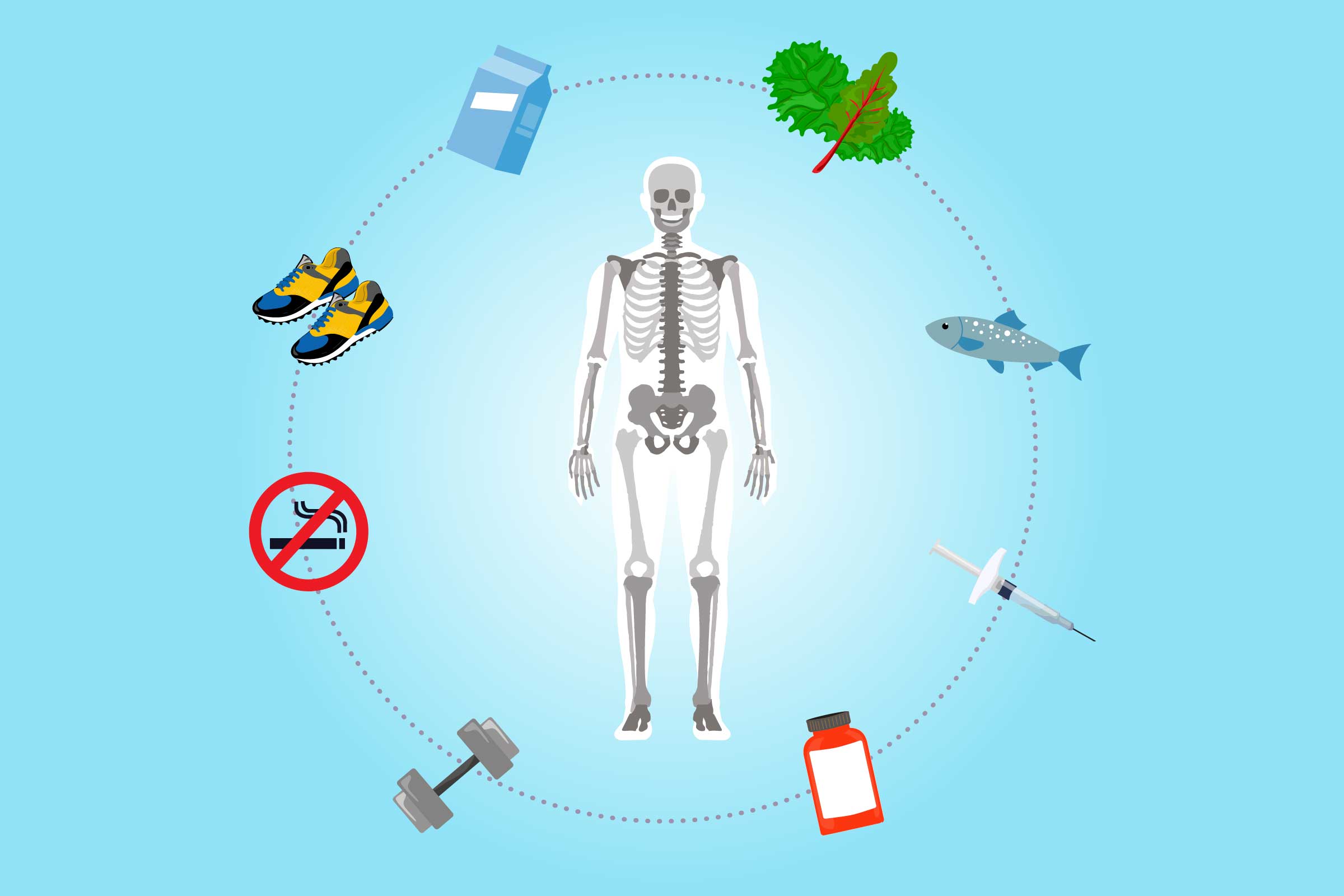Bone fractures can significantly impact one’s quality of life, leading to pain, limited mobility, and a prolonged recovery process.
However, with proactive measures and a focus on bone health, it’s possible to reduce the risk of fractures.
In this article, we will explore various strategies to prevent bone fractures and promote overall skeletal well-being.
Nutrition for Bone Health
A balanced diet rich in essential nutrients is a cornerstone of fracture prevention. Adequate calcium and vitamin D intake are crucial for maintaining bone density.
Include dairy products, leafy greens, fortified foods, and fatty fish in your diet to ensure a sufficient supply of these vital nutrients.
Magnesium and Other Micronutrients
Magnesium, along with other micronutrients such as vitamin K and phosphorus, plays a crucial role in bone health. Incorporate magnesium-rich foods like nuts, seeds, and whole grains into your diet.
Leafy greens and fermented foods can contribute to vitamin K intake, supporting bone mineralization and strength.
Regular Weight-Bearing Exercise
Engaging in weight-bearing exercises is an effective way to strengthen bones and reduce the risk of fractures.
Activities like walking, running, hiking, and resistance training stimulate bone-forming cells, enhancing bone density and overall skeletal health. Aim for at least 150 minutes of moderate-intensity exercise per week.
Balance and Flexibility Training
Improving balance and flexibility is essential for preventing falls and fractures, particularly in older individuals.
Incorporate exercises like tai chi and yoga into your routine to enhance stability, coordination, and flexibility, reducing the likelihood of accidental falls.
Fall Prevention Strategies
Implementing strategies to prevent falls is crucial, as they often lead to fractures. Ensure your living space is well-lit, free of obstacles, and equipped with handrails and supportive aids.
Regular vision check-ups, proper footwear, and using assistive devices when needed can significantly reduce the risk of falls.
Maintaining a Healthy Body Weight
Maintaining a healthy body weight is important for bone health. Excessive body weight can strain bones, while being underweight may lead to decreased bone density.
Adopting a balanced diet and regular exercise can contribute to achieving and maintaining a healthy weight.
Limiting Alcohol and Quitting Smoking
Excessive alcohol consumption and smoking are linked to decreased bone density and an increased risk of fractures.
Limit alcohol intake and quit smoking to protect your bones and promote overall well-being.
Regular Bone Density Screening
Regular bone density screenings can help identify early signs of bone loss, allowing for timely intervention and preventive measures.
Consult with your healthcare provider to determine the appropriate frequency of screenings based on your age, risk factors, and overall health.
Conclusion
Preventing bone fractures requires a holistic approach that encompasses nutrition, exercise, fall prevention, and lifestyle choices.
By prioritizing bone health through a balanced diet, regular physical activity, and addressing risk factors, individuals can build a strong foundation for their skeletal well-being.
Taking proactive steps today can significantly reduce the risk of fractures and contribute to a life of mobility, independence, and overall health.
Consult with healthcare professionals for personalized advice and guidance on implementing these strategies into your lifestyle.

Leave feedback about this